
Theodore Thurston Geer was the tenth Governor of Oregon,serving from January 9,1899,to January 14,1903. The Republican politician was in office when the legislature adopted the "Oregon System",Oregon's system of initiative and referendum. He also served in the Oregon House of Representatives,including time as its Speaker.

The 1912–13 United States Senate elections were held on various dates in various states. They were the last U.S. Senate elections before the ratification of the Seventeenth Amendment in 1913,establishing direct elections for all Senate seats. Senators had been primarily chosen by state legislatures. Senators were elected over a wide range of time throughout 1912 and 1913,and a seat may have been filled months late or remained vacant due to legislative deadlock. Some states elected their senators directly even before passage of Seventeenth Amendment. Oregon pioneered direct election and experimented with different measures over several years until it succeeded in 1907. Soon after,Nebraska followed suit and laid the foundation for other states to adopt measures reflecting the people's will. By 1912,as many as 29 states elected senators either as nominees of their party's primary or in conjunction with a general election.
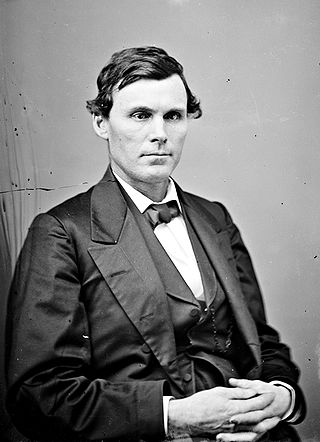
Benjamin Franklin Harding was an American attorney and politician born in Pennsylvania. He held political offices in the Oregon Territory and later served as a United States senator from the state of Oregon.
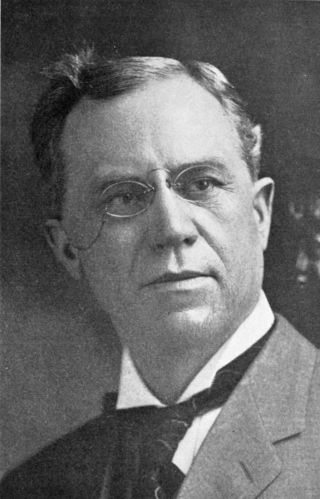
Charles William Fulton was an American lawyer and politician in the state of Oregon. A native of Ohio,he grew up in Iowa and Nebraska before settling in Astoria,Oregon. A Republican,he served in the Oregon State Senate,including time as President of the Senate,before he was elected as United States Senator from Oregon.

John Newton Williamson was an American rancher and politician in the state of Oregon. A native Oregonian,he served in both chambers of the Oregon Legislative Assembly representing central and eastern Oregon in the late 19th century. A Republican,he then served in Congress from 1903 to 1907 and was involved in the Oregon land fraud scandal.

Conrad Patrick Olson was an American politician and judge in Oregon. He was the 48th justice of the Oregon Supreme Court. Additionally,the Wisconsin native served in both chambers of the Oregon Legislature during the early 1900s.
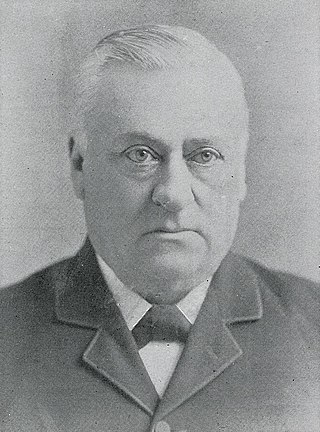
William Davenport Hare was an American politician in Oregon. He served as a Republican member of the Oregon Legislature and the 8th mayor of Hillsboro,Oregon. His other duties included those of customs collector and presidential elector. A native of what was Virginia,his grandfather was a member of the United States Congress,while several of his descendants would also serve in the Oregon Legislature.

Thomas Ramsey Cornelius was a prominent American politician and soldier in the early history of Oregon. Born in Missouri,he moved to the Oregon Country with his family as a young man,where he fought in the Cayuse War and Yakima Indian War against the Native Americans. He settled in Washington County near what later became Cornelius,named in his honor.
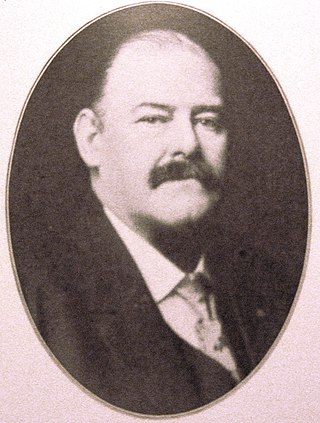
William Nathan Barrett was an American politician and lawyer in Oregon. A native of Washington County,he served in both chambers of the Oregon Legislative Assembly,including three different times in the Oregon House. A Republican,he was also a three time mayor of Hillsboro,Oregon.

Winlock W. Steiwer was an American banker,rancher,and politician in the state of Oregon. Born in the Willamette Valley,he made his name in Eastern Oregon as the founder of a bank and as county judge. A Republican,he twice served in the Oregon State Senate. He pleaded guilty in the Oregon land fraud scandal of the early 1900s.

Charles Bruce Moores was an American businessman and politician in the state of Oregon. A native of Missouri,he came from a family of politicians including his father John H. Moores,his grandfather Isaac R. Moores,and uncle Isaac R. Moores,Jr. who all served in the Oregon Legislature. A Republican,he served as the Speaker of the Oregon House of Representatives during his sole term in the House in 1895.

William G. Hare was an American lawyer and politician in the state of Oregon. A native Oregonian,he grew up in the Hillsboro area where he later practiced law. A Republican,he served in both houses of the Oregon Legislature,as had his father William D. Hare. His brother Joseph was once the mayor of Hillsboro.
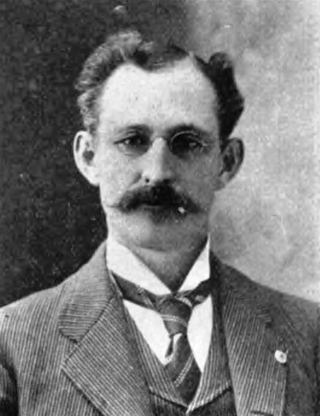
William Henry Wehrung was an American businessman and politician in the state of Oregon. A native Oregonian,he was a cabinetmaker,banker,and merchant in Hillsboro,Oregon. A member of the Democratic Party,he served in the Oregon State Senate and was a longtime member of the Hillsboro city council.

The 1898–99 United States Senate elections were held on various dates in various states. As these U.S. Senate elections were prior to the ratification of the Seventeenth Amendment in 1913,senators were chosen by state legislatures. Senators were elected over a wide range of time throughout 1898 and 1899,and a seat may have been filled months late or remained vacant due to legislative deadlock. In these elections,terms were up for the senators in Class 1.

The 1902–03 United States Senate elections were held on various dates in various states. As these U.S. Senate elections were prior to the ratification of the Seventeenth Amendment in 1913,senators were chosen by state legislatures. Senators were elected over a wide range of time throughout 1902 and 1903,and a seat may have been filled months late or remained vacant due to legislative deadlock. In these elections,terms were up for the senators in Class 3.

William Lair Thompson,known as Lair Thompson or W. Lair Thompson,was an American politician and lawyer from the state of Oregon. He served one term in the Oregon House of Representatives followed by a four-year term in the Oregon State Senate. Thompson was a conservative Republican who represented a large rural district. He served as President of the Oregon Senate during the 1915 legislative session. Thompson was one of Oregon's most prominent trial attorneys,handling a number of high-profile cases including one,Bunting v. Oregon,that required him to present arguments before the United States Supreme Court.
William Alvin Massingill,also known as Billy Massingill or W. A. Massingill,was an American businessman and politician who served as state legislator for the state of Oregon. He served one two-year term in the Oregon House of Representatives as a Republican legislator,representing a large rural district in south-central Oregon. He also ran a general store,sawmill,and a wool shipping warehouse in Lakeview,Oregon,and was that town's postmaster for several years.

Robert Albert Emmitt,also known as Bob Emmitt or Judge Emmitt,was an American farmer and politician. He served two two-year terms in the Oregon House of Representatives as a Republican legislator,representing a large rural district in eastern Oregon. He was also a justice of the peace in Klamath County and later the postmaster and justice of the peace for the city of Klamath Falls,Oregon.
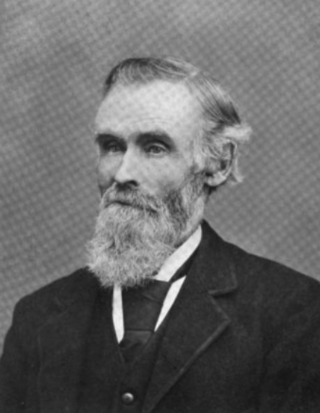
John Emmitt was an American pioneer farmer and state legislator from the state of Oregon. He served four years in the Oregon State Senate as a Republican,representing a large rural district in western Oregon. Prior to being elected to the state senate,he was justice of the peace in Douglas County,Oregon. Later,Emmitt was appointed to the board of regents for Oregon Agricultural College.

William Kuykendall was an American politician and physician from Eugene,Oregon. He was a conservative Republican who represented Lane County in the Oregon State Senate. He served two four-year terms in the senate plus an extra year and was senate president from 1905 through 1906. Prior to being elected to the state senate,Kuykendall served as mayor of Eugene. He practiced medicine in Oregon for 56 years and was the founder of Eugene's first hospital. He also taught medicine at Willamette Medical College for several years.



















